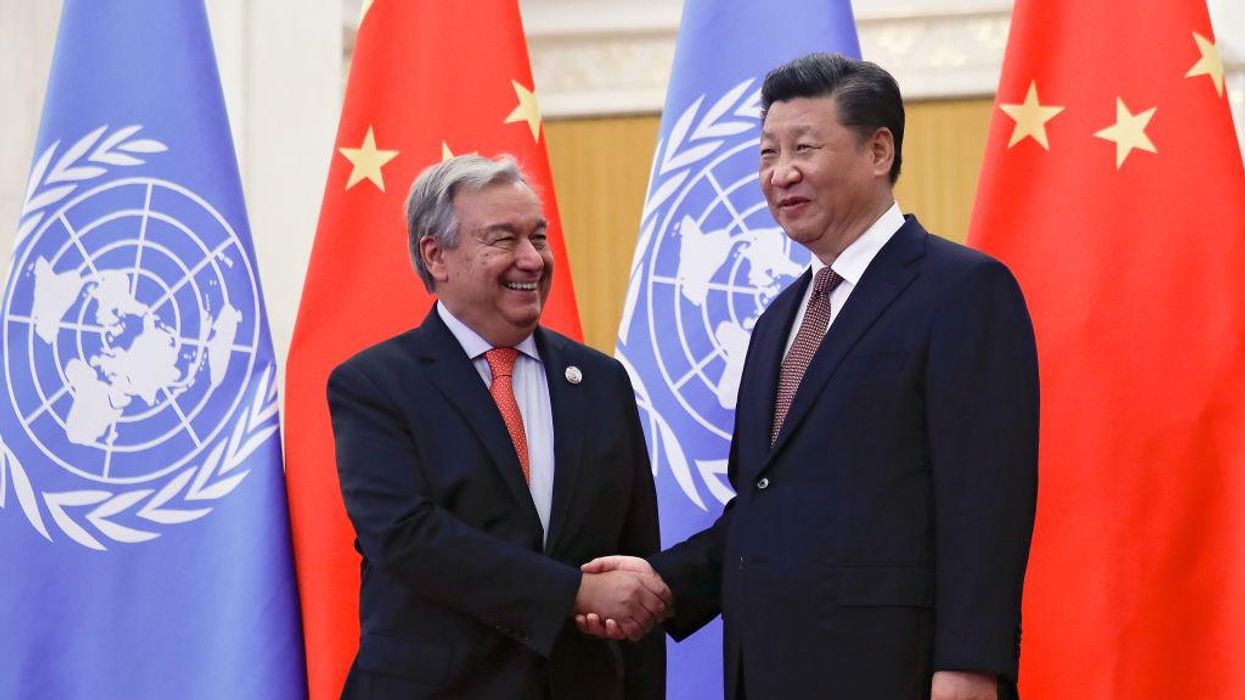
Photo by Andy Wong-Pool/Getty Images

On September 20, United Nations Secretary-General António Guterres told the U.N. general assembly in New York City that "[p]olluters must pay." He insisted that the international body, of which the U.S. is the largest financial contributor, must "hold fossil fuel companies and their enablers to account."
Having just visited Pakistan, which recently suffered its destructive annual monsoon, Guterres suggested that it was incumbent upon industrious developed nations to confiscate profits from oil and gas companies and redistribute them both to foreign nations "suffering loss and damage caused by the climate crisis and to people struggling with rising food and energy prices."
Guterres previously called the reliance on fossil fuels both a "moral and economic madness" — a madness in which Pakistan, one so-called vulnerable country, partakes, consuming an estimated 503,000 barrels of oil a day. He also indicated that "without renewables, there can be no future." Nevertheless, Guterres intimated in his speech that a green future and climate resilience would ultimately be financially powered by the fossil fuel industry.
The Guardian reported that Guterres, like eco-socialist activists and the European Union, has an eye on the $17.8 billion quarterly profit reported by Exxon in July, the $11.6 billion three-month record profit posted by Chevron, the $8.5 billion profit recorded by BP, and more.
While Guterres regards the direction of funds from these and other such corporations to the third-world as "the first priority of every government," the "climate-related and justice-based" global wealth redistribution efforts won't stop there. He also proposed a new tax on airline travel, a financial penalty on bunker fuels used by ships, additional taxes on fossil fuel extraction, and taxes on financial transactions.
Appropriated funds would allegedly be invested in early warning systems, disaster relief, and the development of infrastructure to withstand additional weather changes.
Richard Heede, who runs the Climate Accountability Institute's "Carbon Majors" project, told Ars Technica that while there are presently no mechanisms for the international body to tax oil and gas companies or force payments from them in this manner, "Guterres is correct" to prompt nations to get the ball rolling.
Although Guterres implicated entire nations in addition to corporations, it is unclear precisely which wealthy countries he would like to see opt in.
China, for instance, boasts the world's second biggest economy, yet it still claims to be a developing country. According to a 2021 report from the Rhodium Group, its emissions far exceed all developed nations combined. Whereas China's contributions exceeded 27%, the U.S., which recently pledged $600.8 million over the next four years to support the "eighth replenishment of the Global Environment Facility," allegedly emitted to 11%, less than half. Whereas China had 1,110 coal power plants as of January 2022, and was building more, the U.S. had 240.
While Guterres did not provide a criteria for precisely which nations are on the hook and precisely to whom they now owe money, he made clear that it was "high time to put fossil fuel producers, investors and enablers on notice."